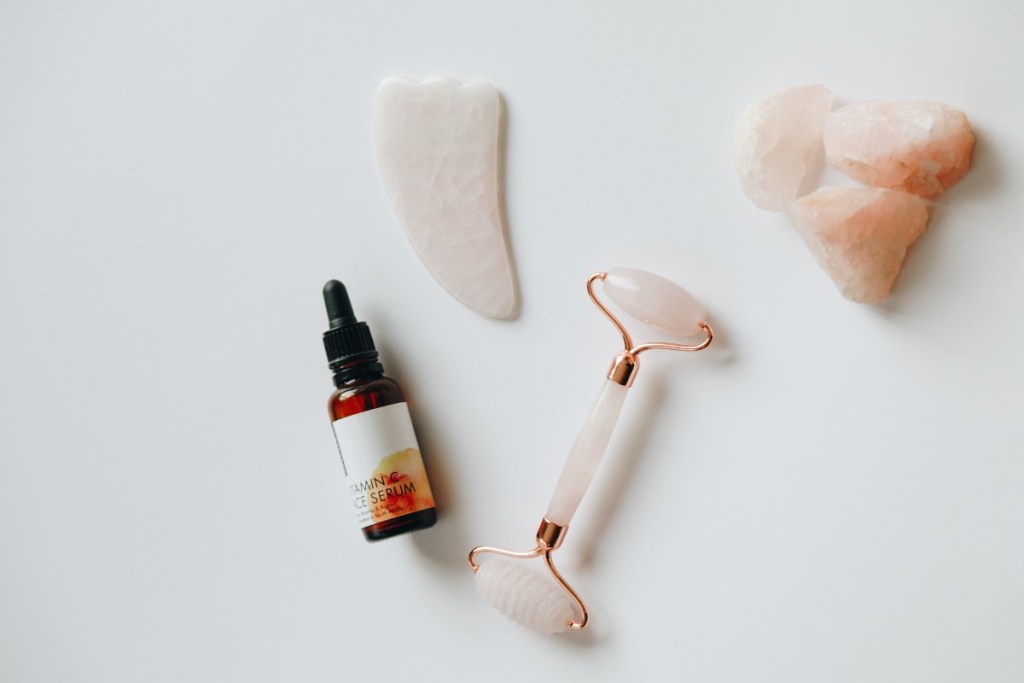Winter tends to wreak havoc with our skin. Colder temperatures outside and heat inside added to holiday stress and lack of sleep, are a recipe for skin problems. You may notice your skin is drier, flakier, or more cracked than it is when the weather outside is more delightful. Less sleep or more stress can cause under-eye circles and speed up the aging process. Even acne can get worse.
It takes one look in the mirror to understand your wardrobe isn’t all you need to change once the temperature drops. In addition to replacing tank tops with sweaters and swimsuit cover-ups with cozy down coats, winter is also prime time to shake up your skincare regimen — and you might want to consider adding a lightweight product that goes heavy on benefits: A serum.
Here’s everything you need to know about using serums during the winter.

What are serums?
Serums are products with high concentrations of specific active ingredients that deeply penetrate the skin, often going much further than heavy creams. You can use them on your face and even eyelashes. Serums typically come in bottles and are transparent and gel-based or liquid. They’re not as thick as your daily moisturizer or night cream, so you won’t even notice you have added a product to your regimen.
Should I add serum to my winter skincare routine?
Serums have varying benefits, and you’ll want to choose the right product for your conditions. However, some general reasons to use a serum in the winter include:
- Hydration
- Brighten a dull complexion
- Acne treatment
- Anti-aging properties
- Protection from UV light
- Reduction of dark circles
What types of serum are out there?
Serums aren’t a one-size-fits-all product. There are several types, and understanding them can help you find your perfect product.
Vitamin C
Using a vitamin C serum for winter can provide numerous benefits. First, it’s generally safe for nearly anyone. Almost everyone can apply a vitamin C serum without having an issue, one 2013 report showed. The same report indicated vitamin C products help the skin lock in moisture, mitigating the effects of dry indoor air. It can also reduce redness, something you may need on a brutally cold and windy day while maintaining a healthy glow. Research also shows topical application of vitamin C is fairly or moderately effective at reducing the appearance of dark under-eye circles, ideal if you’ve been burning the midnight oil searching for the perfect holiday gifts.
Hyaluronic acid serum
Products with hyaluronic acid are also known to help the skin retain moisture. Some serums with hyaluronic serums may tout anti-aging benefits, though that claim is still up for debate. A small study of 24 people who used a product containing five forms of hyaluronic acid found it appeared to reduce fine lines and wrinkles. However, other experts say fillers are more effective for anti-aging purposes.
Retinol serum
Retinol serums are a form of vitamin A. They contain a lower concentration of retinol than prescription creams, so they are available over-the-counter. These serums speed up cell turnover and can increase collagen production, providing users with radiant skin and anti-aging benefits. It may also help with oily skin and acne, which can worsen in the winter as our body produces more sebum. The drawback: Retinol serums can be drying, so you’ll want to be sure to moisturize after.
What are some do’s and don’ts of using a serum for winter skincare?
Serums are a cinch to apply, but you’ll want to follow a few simple guidelines to ensure you’re getting the most out of them.
- Make it part of your daily skincare routine. Serums should be applied to the skin once or twice per day.
- Time it right. Serums are light, so you don’t want to save them for the end of your skincare routine. First, clean your face with a cleanser to give the serum the best chance of penetrating deeply. Next, put on the serum. Finish by moisturizing and applying any makeup.
- Patch test first. Before using any new product, even a serum, on your skin, do a test on a small area to check for any adverse reactions. If you don’t experience one, you can apply it in full.
- Stop using it if it’s irritating. Even if the serum passes the patch test with flying colors, you may experience unwanted side effects later, like dryness or redness. If that happens, stop using it and speak with a dermatologist.
Serums are a worthwhile addition to a winter skincare routine. There are several types, including vitamin C, hyaluronic acid, and retinol serums. Getting a vitamin C serum for winter may be especially useful for people who want to brighten and hydrate the skin, and people rarely have reactions to it. Hyaluronic acid serums are known for keeping skin moisturized, while retinol serums may help mitigate signs of aging and acne. If you have a reaction to any type of serum, stop using it and speak with a dermatologist. It’s best to start slowly by doing a patch test on the skin before using it on a large area.
BlissMark provides information regarding health, wellness, and beauty. The information within this article is not intended to be medical advice. Before starting any diet or exercise routine, consult your physician. If you don’t have a primary care physician, the United States Health & Human Services department has a free online tool that can help you locate a clinic in your area. We are not medical professionals, have not verified or vetted any programs, and in no way intend our content to be anything more than informative and inspiring.




